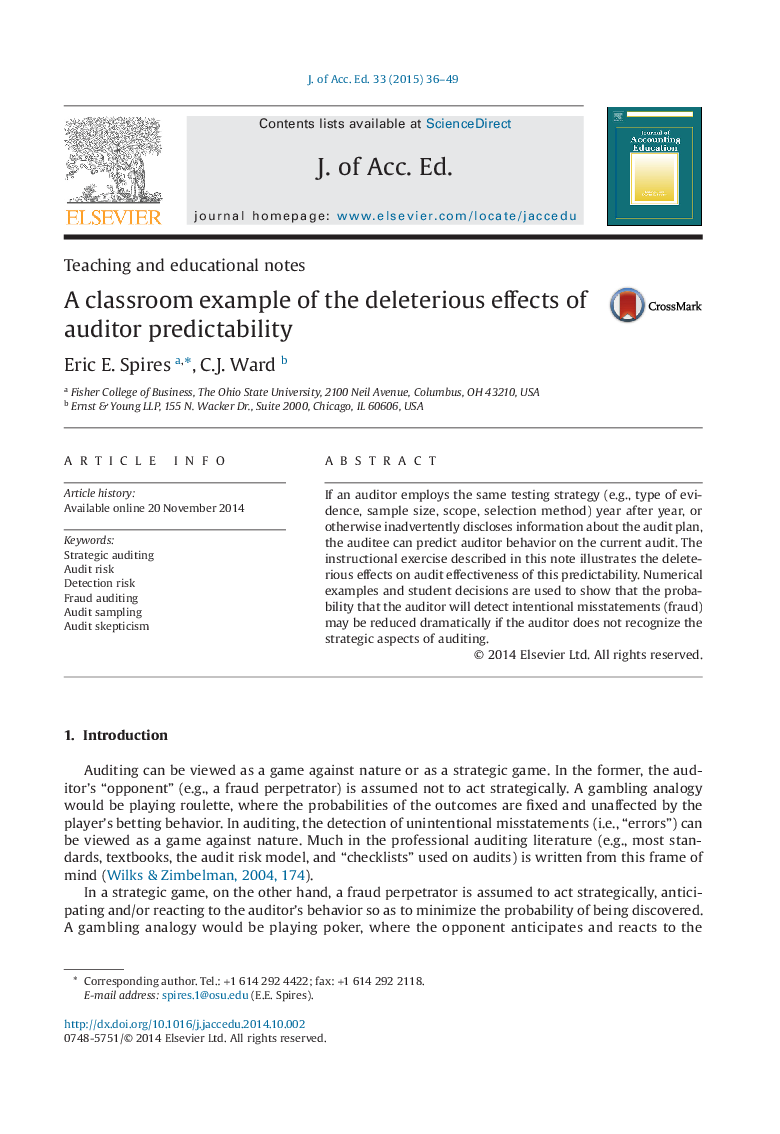| Article ID | Journal | Published Year | Pages | File Type |
|---|---|---|---|---|
| 359426 | Journal of Accounting Education | 2015 | 14 Pages |
•Students play the role of a fraudster and insert misstatements in an account.•The instructor “audits” the account in both a predictable and unpredictable way.•Predictability is shown to increase the chances of fraud going undetected.•Formal statistical analyses support and generalize the exercise-based findings.•Real fraud cases involving auditor predictability are discussed.
If an auditor employs the same testing strategy (e.g., type of evidence, sample size, scope, selection method) year after year, or otherwise inadvertently discloses information about the audit plan, the auditee can predict auditor behavior on the current audit. The instructional exercise described in this note illustrates the deleterious effects on audit effectiveness of this predictability. Numerical examples and student decisions are used to show that the probability that the auditor will detect intentional misstatements (fraud) may be reduced dramatically if the auditor does not recognize the strategic aspects of auditing.
